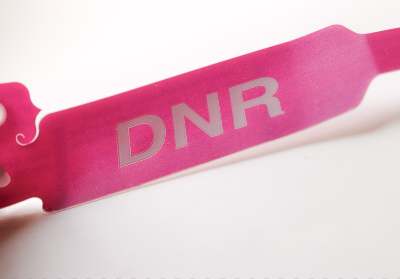Top Class Actions’s website and social media posts use affiliate links. If you make a purchase using such links, we may receive a commission, but it will not result in any additional charges to you. Please review our Affiliate Link Disclosure for more information.
The Care Quality Commission (CQC) is launching an urgent investigation into care homes due to fears that some may still be using a blanket DNR policy during the coronavirus pandemic.
The Guardian reported England’s health care watchdog has heard about incidences of some general practitioners applying “do not resuscitate” (DNR) notices to bands of residents at care homes in March and April.
Establishing a blanket DNR policy means certain residents will not be taken to hospital to save their lives in the event of a serious health incident.
The CQC says Wales and East Sussex care homes have implemented a blanket DNR policy without patient consent, according to The Guardian.
On 7 April, England’s health authorities wrote reminders to doctors across the country, stating that practising with a blanket DNR policy is “inappropriate,” The Telegraph reported.
The CQC’s investigation into care homes using a blanket DNR policy was announced 1 October by Health Minister Lord Bethell, according to the Independent.
“The Department is very clear that the blanket use of DNACPR and DNR is unacceptable,” Bethell said during the announcement. “An agreement to a DNACPR is an individual decision and should involve the person concerned or, where the person lacks capacity, their family, carer, guardian or any other legally recognised advocate.”
Bethell continued: “I can inform the House that the Minister for Patient Safety and Mental Health will be writing to the Care Quality Commission requesting that it investigates and reports on DNACPR issues.”
Charity Compassion In Dying pressed for a blanket DNR policy investigation after it heard many reports of blanket DNR orders in several healthcare facilities during the COVID-19 pandemic, according to The Telegraph.
Health and wellness advocates at Turning Point reported 19 occurrences of blanket DNR policies being used, and Learning Disability England noted nearly one-fifth of members disclosed blanket DNR policies were established in patients’ records without consulting or getting consent from patients in the early stages of the COVID-19 pandemic, the Independent reported.

The CQC said it is establishing the breadth of its investigation and said it will assess care homes, hospitals and primary care.
Care homes said the use of a blanket DNR policy was not a dominant concern in the face of another potential wave of COVID-19 infections, according to The Guardian.
There are further concerns over DNR policies not being reviewed in patients’ files.
Elderly or disabled residents may need an assessment in order to provide consent before a DNR order is implemented.
The Independent reported that in July, ministers were threatened with a judicial review on DNR blanket policies.
Following the threat of a review, the ministers established clearer rules for doctors and patients on DNR policies.
DNR orders are legally made on an individual basis and patients should be fully in the know about what the DNR order entails, the Independent reported. Legally, no facility should be using a blanket DNR policy.
“We welcome this commission from the Department of Health and Social Care and are taking it forward at pace,” CQC chief inspector of primary medical services and integrated care Dr. Rosie Benneyworth said, according to the Independent. “This builds on the concerns we reported earlier in the year, and we are pleased that they are being given closer attention.”
“Along with partners, we have been clear that it is unacceptable for advance care plans, with or without DNAR form completion, to be applied to groups of people of any description,” Benneyworth added. “These decisions must continue to be made on an individual basis according to need.
“Through this review, we will look to identify and share best practice in this complex area as well as identifying where decisions may not have been patient-centred and ensuring mistakes are not repeated.”
What is your opinion about facilities using a blanket DNR policy? Do you think they should be held legally accountable for applying such practices? Share your thoughts with us in the comments section below.
Check back daily for the most recent U.K. class action lawsuit and consumer protection news.
ATTORNEY ADVERTISING
Top Class Actions is a Proud Member of the American Bar Association
LEGAL INFORMATION IS NOT LEGAL ADVICE
Top Class Actions Legal Statement
©2008 – 2024 Top Class Actions® LLC
Various Trademarks held by their respective owners
This website is not intended for viewing or usage by European Union citizens.















